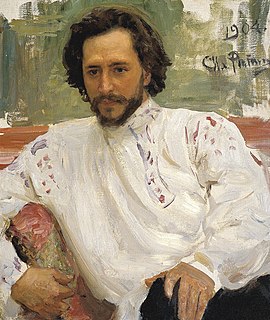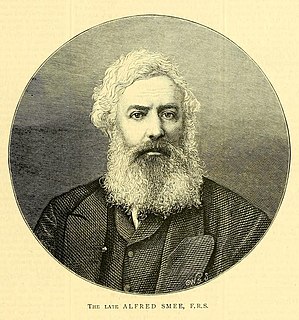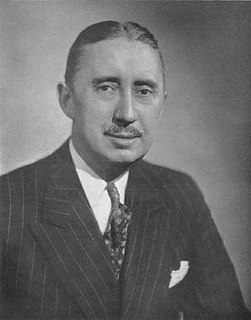A Quote by Malcolm Muggeridge
Accumulating knowledge is a form of avarice and lends itself to another version of the Midas story ...man [is] so avid for knowledge that everything that he touches turns to facts; his faith becomes theology; his love becomes lechery; his wisdom becomes science; pursuing meaning, he ignores truth.
Related Quotes
WISDOM IS dependent upon knowledge. Where there is complete ignorance there can be no wisdom, no knowledge of the right thing to do. Man’s knowledge is comparatively limited and so his wisdom must be small, unless he can connect his mind with a knowledge greater than his own and draw from it, by inspiration, the wisdom that his own limitations deny him. Only God knows all truth; therefore only God can have Real wisdom or know the right thing to do at all times, and man can receive wisdom from God. Wisdom is obtained by reading the mind of God.
Everlastingly chained to a single little fragment of the Whole, man himself develops into nothing but a fragment; everlastingly in his ear the monotonous sound of the wheel that he turns, he never develops the harmony of his being, and instead of putting the stamp of humanity upon his own nature, he becomes nothing more than the imprint of his occupation or of his specialized knowledge.
Science is rooted in the will to truth. With the will to truth it stands or falls. Lower the standard even slightly and science becomes diseased at the core. Not only science, but man. The will to truth, pure and unadulterated, is among the essential conditions of his existence; if the standard is compromised he easily becomes a kind of tragic caricature of himself.
The heart becomes sick, as the body becomes sick, and its remedy is al-Tawbah (repentance) and protection [from transgression]. It becomes rusty as a mirror becomes rusty, and its clarity is obtained by remembrance. It becomes naked as the body becomes naked, and its beautification is al-Taqwa. It becomes hungry and thirsty as the body becomes hungry, and its food and drink are knowledge, love, dependence, repentance and servitude.
To the enlightened man... whose consciousness embraces the universe, to him the universe becomes his 'body', while the physical body becomes the manifestation of the universal mind. His inner vision an expression of the highest reality, and his speech an expression of eternal truth and mantric power.
Born, the Man assumes the name and image of humanity, and becomes in all things like unto other men who dwell upon the earth. Their hard lot becomes his, and his, in turn, becomes the lot of all who shall come after him. Drawn on inexorably by time, it is not given him to see the next rung on which his faltering foot shall fall. Bounded in knowledge, it is not given him to foretell what each succeeding hour, what each succeeding minute, shall have in store for him. In blind nescience, in an agony of foreboding, in a whirl of hopes and fears, he completes the cycle of an iron destiny.
To what part of electrical science are we not indebted to Faraday? He has increased our knowledge of the hidden and unknown to such an extent, that all subsequent writers are compelled so frequently to mention his name and quote his papers, that the very repetition becomes monotonous. [How] humiliating it may be to acknowledge so great a share of successful investigation to one man.
Where no man thinks himself under any obligation to submit to another, and, instead of co-operating in one great scheme, every one hastens through by-paths to private profit, no great change can suddenly be made; nor is superior knowledge of much effect, where every man resolves to use his own eyes and his own judgment, and every one applauds his own dexterity and diligence, in proportion as he becomes rich sooner than his neighbour.
Faced with the immensity of the universe, Job realized that there are limits to man's rationalizing, that we cannot find where the cloud of sorrow starts, that all our boasted knowledge is but an island in the vast ocean of mystery, and as the island of knowledge grows larger, the shore line of mystery becomes longer. At the end of his wits, he surrendered in trust to a Higher Wisdom.
Each truth that a writer acquires is a lantern, which he turns full on what facts and thoughts lay already in his mind, and behold, all the mats and rubbish which had littered his garret become precious. Every trivial fact in his private biography becomes an illustration of this new principle, revisits the day, and delights all men by its piquancy and new charm.
No man can reveal to you aught but that which already lies half asleep in the dawning of your knowledge. The teacher who walks in the shadow of the temple, among his followers, gives not of his wisdom but rather of his faith and his lovingness. If he is indeed wise he does not bid you enter the house of his wisdom, but rather leads you to the threshold of your own mind.

































